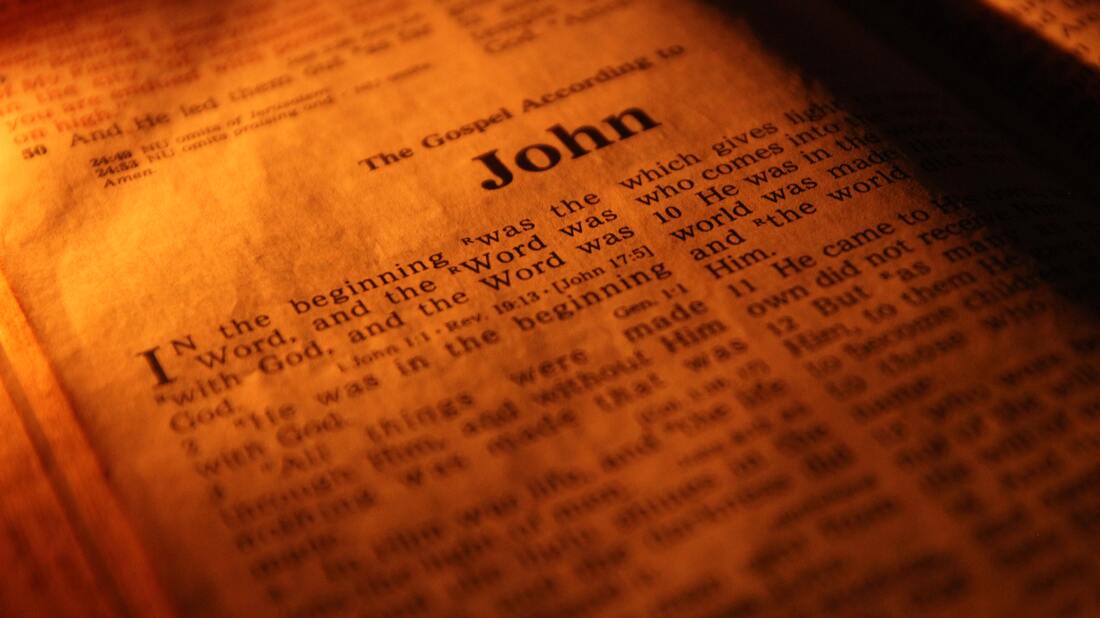|
It is sometimes shocking to find out what people believe about Christ. Most cults and false religions see him as either a very good person, or that He was a prophet, or even that He was the Son of God. None of these are necessarily wrong, however, they fall short of the true identity of our Lord. Jesus himself made the exclusive claim that salvation is only possible through him. He did so by claiming that He and the Father were one. This is to say that Jesus of Nazareth and God the Father are equal in importance. Simply stated, Christ Jesus did claim to be God.
In many ways Christians find themselves in the midst of a fierce battle, i.e. the battle for the deity of Jesus Christ. In order to prove the deity of our Lord, we will have a look at the Bible's interpretation of the person of Christ. In doing so, it should become evident that He possessed the attributes of the living God. We will also look at some of Christ's claims regarding himself. The Gospels are replete of evidence that Christ claimed to be God. Not only did He claim to be God, but He also proved that He was God through the many miraculous deeds done by him during his time on earth. The resurrection being not the least of these. It would become obvious that these findings are in direct opposition to any cult or false religion that does not believe that Jesus is God. Read full article here
0 Comments
A while ago I introduced a subject that may have rattled a few theological cages — the role of the Decalogue in evangelism. This response is quite understandable. As Christians we should all have great respect and reverence for the entire Word of God (Ac. 20:27). We believe that the Word is inerrant and infallible and that it is therefore applicable to, and sufficient to all people of all times (Ps. 19). When we hear phrases like the “obsolescence of the Law of Moses” or the “end of the Law,” it does have a somewhat unsettling effect.
However, this need not be the case. What I introduced in that article is no new concept. Rather, it is something that all Christians of different hermeneutical stripes must agree on, albeit, to varying degrees. For this reason, covenantalists (who typically believe that the Law of Moses is still intact in some ways today) and dispensationalists (who argue that the Mosaic Law in its entirety has been served in the OT) must all agree to an assumed level of breakage or disconnect with the Old Law. Some obvious examples would be for instance that we don’t cast lots anymore to discern the will of the Lord (Lev. 16:8). Rather we commit all things to God in prayer (Ps. 37:5; Phil. 4:6-7). We also don’t require young, unmarried men to marry their deceased brother’s childless widow (Deut. 25:5-10) to propagate his lineage. Rather, the NT reveals a great level of freedom in who we marry as long as we marry in the Lord (1 Cor. 7:39). Differences like the ones mentioned above highlight the fact that there is clearly a level of disconnect between OT and NT times. Any study of such differences involves studying the “continuity vs. discontinuity” between the two testaments. Some Christians do not see as much disconnect between the two testaments as others might. As already stated, this is typically true of covenantalists and dispensationalist. However, even among covenantalists there are disagreements as to the level of discontinuity between the two testaments (classic covenantalism vs. new covenantalism), as there are disagreements among dispensationalists (classical dispensationalism vs. progressive dispensationalism). Read full article here J.C. Ryle: How God shaped one reluctant clergyman into a powerful tool for gospel proclamation12/7/2019 There is a golden thread that runs through the Bible which can sometimes go unnoticed by some. It involves this road that we travel on. For all God’s children of all generations, the walk of faith that we are engaged in does not occur in a vacuum, rather it occurs in an onward and upward motion, spiritually speaking. We often forget the fact that this road that we are on is marked by the grinding footprints and cross-dragging induced furrows of many saints who before us have had to travel the same road on their way to glory (Matt. 7:13-14). This is a walk that has been attempted and completed by many of the Lord’s dear followers of old. There is therefore much that we can learn from the pages of church history, in particular from Christian biography (Prov. 13:20). As Paul instructed the Corinthians, we would be wise to imitate them too, as we diligently imitate the Lord (1 Cor. 11:1).
One such saint that deserves recognition at this juncture is a man by the name of John Charles, or J.C. Ryle. The son of a wealthy banker, Ryle was born in the town of Macclesfield within the region of Cheshire, England, on 10 May, 1816. Like many other boys he took a liking in different kinds of sports during his teenage years, but especially excelled at the activities of rowing and the game of cricket. After his transfer to Christ Church, Oxford in 1834, his cricket playing career reached its crescendo in an 1836 Varsity match at Lords, when he took no less than 10 wickets in a bowling effort, sealing the match for Oxford. Read the full article here In all evangelistic and apologetic endeavors it is vitally important to point the one being evangelised to the problem of sin early on in the process. This is indeed the source of the unregenerate’s problem before God (Rom. 3:23), and up to this point, most conservative scholarship would agree. However, not all would agree about the actual content of God’s laws which the unregenerate has broken. Assuming the total inability of people to save themselves, and the totality of their depravity or fallenness inherited by being born in Adam, the following study seeks to provide an answer to the actual laws that God holds people accountable to (Rom. 5:12; Eph. 2:1-2; Tit. 3:5-6). In effort to answer this question, many have assumed that the Decalogue is the standard of law that God still requires, even until New Testament times, thus making it the basis for showing the unbeliever, first, their transgression of God’s law, but second, their inability to keep God’s law.
Although the latter employment of the Decalogue could very well be substantiated from the New Testament (Rom. 3:20), it is the insistence of this study that the former cannot. Read the full article here The presuppositional method of apologetics, popularised by Westminster Seminary professor Cornelius van Til, largely relies on the internal testimony of the Bible to provide credible arguments for the accuracy, exclusivity, and supremacy of the Christian faith over all other world religions. Hence, the importance of Presuppositionalism is immense. Reliance on Scripture is fundamental to Christianity.
Sadly, in today’s so-called Christian community, there are many professing Christians who have interpretations of Christianity that oppose the biblical interpretations for truth that have been carried on to us by the Apostles (Thomas & Farnell, 1998:356). Understandably, there are many minor differences between the evangelical denominations of Christianity, and there should therefore be a measure of tolerance for one another. Yet, there are differences that require extreme refutation since the Bible itself issues a stern warning against erroneous teachings (Linneman, 2001:148). In extreme cases it means the difference between belief in the existence of God and the pre-eminence of Christ in redemptive history as stipulated in Scripture, and some man-centred, Christless, practically atheistic approach to Scripture. Read the full article here |
Topics
All
By Date
March 2024
|




